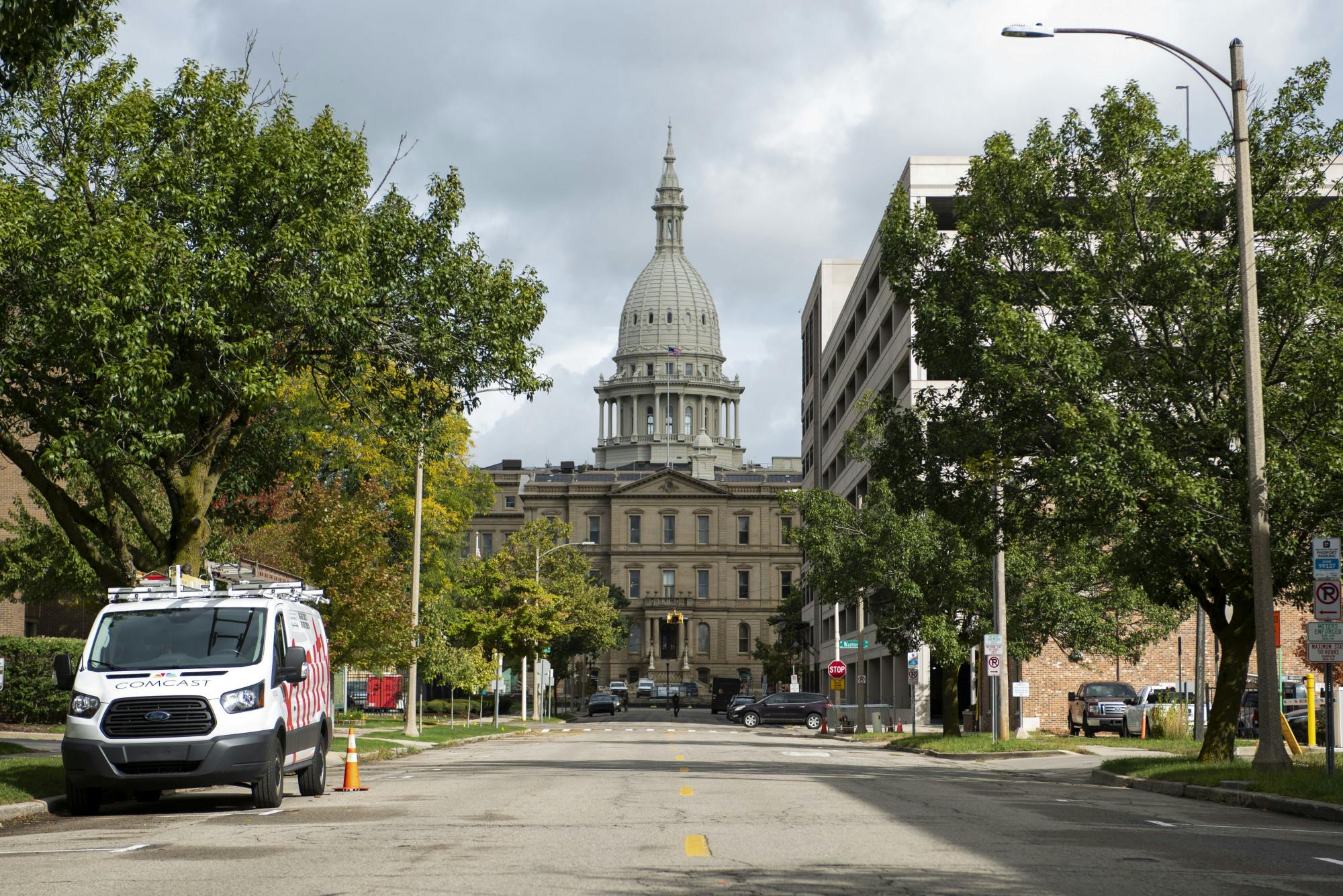For months, Michigan Gov. Gretchen Whitmer was the subject of various lawsuits challenging her authority in issuing strict executive orders throughout the COVID-19 pandemic, with all of them ending in her triumph and the upholding of the orders — that is, until Michigan Supreme Court’s Friday ruling against her and her use of emergency powers.
Now, as statewide emergency declarations and protections are up in the air, many officials are calling for bipartisan action between the governor and the state’s Republican-led legislature.
“The Senate stands ready to work with the Governor to do what is necessary for Michigan to lead by example by informing, inspiring, and enabling citizens to do what’s necessary and responsible,” Senate Majority Leader Mike Shirkey said in a statement. “Now is the time for bipartisan action to transition from government operating in fear of the virus to government managing life in the presence of the virus.”
In a series of tweets, however, Shirkey said while the legislature is ready to work with the governor, he believes she is not ready to work with it.
“The Legislature has proven time and again that we're ready to do the hard work necessary to reach agreement,” Shirkey tweeted. “But her actions this week prove she'd much prefer to govern alone.”
Controversy arose at the end of April when Whitmer terminated the declared state of emergency on April 30 after the legislature declined another extension of it.
One minute later, the governor redeclared the state of emergency without congressional support, which led to a lawsuit being filed against her by the legislature.
Despite this, Speaker of the House Lee Chatfield said the legislature is still willing to work with Whitmer in coming up with bipartisan solutions.
“The Legislature was there in March and April to work with the governor to improve her executive orders and help keep Michigan healthy and moving forward together,” Chatfield said in a statement. “It worked well, just like the authors of our Constitution intended. Months later, we are still ready to work alongside Gov. Whitmer in a bipartisan way to improve the state’s response to this pandemic.
“It’s been said the governor is in the best position to act quickly, and the Legislature is in the best position to act deliberately. That is how our entire system is designed to work. We look forward to the coming bipartisan deliberations on the pandemic response and the improved outcomes for Michigan families.”
Shirkey and Chatfield both praised the Supreme Court’s decision against the governor, as well.
“This is a giant win for the people of Michigan and for the democratic process,” Chatfield said in a statement. “The people of this state have been denied a voice and a seat at the table in decisions that have impacted every facet of their lives and their futures over the past eight months. They deserve to have their representatives bring their voice and their concerns into this decision-making process.”
Michigan United for Liberty, an organization that formed in response to one of Whitmer’s executive orders from March, also praised the Supreme Court’s decision and encouraged bipartisan action.
“After nearly six months of waiting, we were absolutely thrilled to see the Supreme Court rule in favor of our constitutional rights, on a case which had the same arguments initially made by our legal team,” a spokesperson for Michigan United for Liberty said in an email. “Our most sincere hope is that our legislators have great success in working with our Governor … to balance the risk between public safety, the state’s economy, and the mental health of every Michigander.”
Whitmer’s orders will no longer be enforceable via prosecution, according to a statement from press secretary Ryan Jarvi on behalf of Attorney General Dana Nessel.
“In light of the Supreme Court’s decision on Friday, the Attorney General will no longer enforce the Governor’s Executive Orders through criminal prosecution,” Jarvi said in a statement. “However, her decision is not binding on other law enforcement agencies or state departments with independent enforcement authority. It’s her fervent hope that people continue to abide by the measures that Governor Whitmer put in place … since they’ve proven effective at saving lives.”
As local governments are issuing continuances of emergency measures before the governor’s orders expire Oct. 23, Lansing Mayor Andy Schor praised Ingham County Health Officer Linda S. Vail’s issuing of countywide emergency orders last weekend.
“As leaders, we must ensure that people are safe from this terrible virus,” Lansing Mayor Andy Schor said in a statement. “I am disappointed in the Michigan Supreme Court's ruling that will strike down all of Governor Whitmer's COVID-19 related executive orders, and I will be looking at what we can do here in the City of Lansing to ensure that our residents, workers and visitors are safe.”
Support student media!
Please consider donating to The State News and help fund the future of journalism.
Discussion
Share and discuss “State officials react to Michigan Supreme Court ruling against Gov. Whitmer's orders” on social media.








